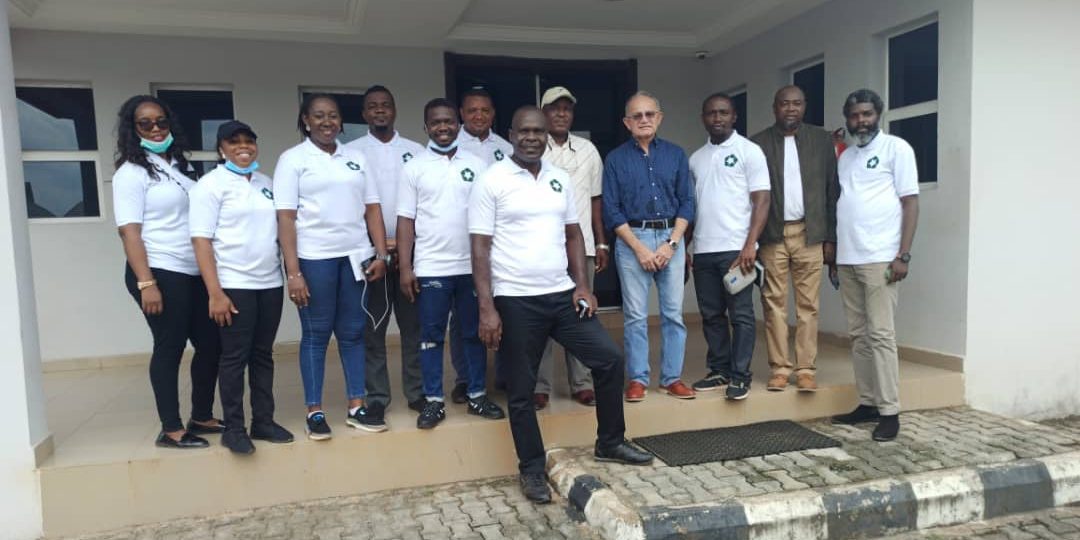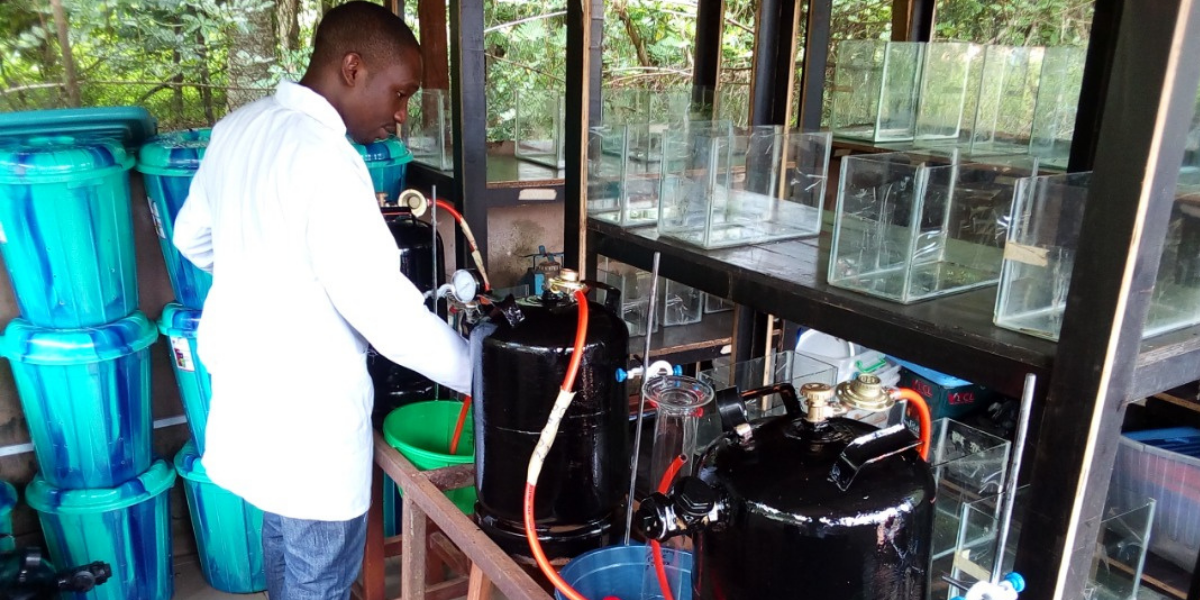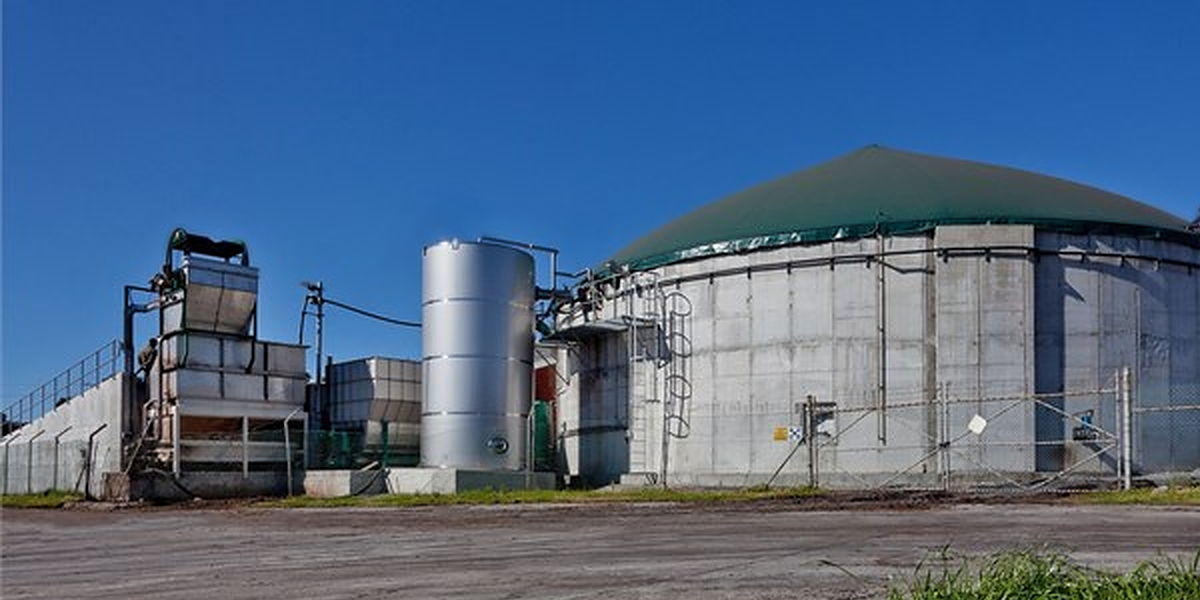
Dr Mike Ajieh describes how the ACTUATE power-from-waste plant at University of Benin is translating RECIRCULATE research into real benefits for energy supply, the environment and student experience.
The world is faced with huge challenge of municipal solid waste management. This is due mainly to the sheer volume of waste generated by the continuous increase in population, economic development and urban spread. If we take Nigeria as an example, then according to World Bank in 2016, the country’s population has grown from 196 million in 2018 to 206 million in 2020. That’s a national growth rate of 3.2% per annum. Nigeria’s GDP is also growing: from USD376 billion in 2017 to 443 billion in 2021. It is widely accepted that population and economic growth are the major indices for measuring increased consumption of resources and, consequently, the rate of increase in waste generation. As a result, municipal waste management in Nigerian cities faces a huge challenge of implementing and maintaining a sound waste-management pathway.
As an environmental and energy professional, the technical challenges- and opportunities- of developing sound municipal waste management systems for Nigeria have always fascinated me. That includes using anaerobic digestion (AD) to convert waste to energy and the safe re-use of the AD by-products as a resource-biofertilizer for food production. I have always seen AD as a top priority, and as member of RECIRCULATE/ACTUATE research team, I have been excited to draw from the professional experiences of other team members. My colleagues bring their experience from across engineering, science and social science, which makes working together not just exciting but informative and fulfilling. This holistic approach leads to adopting a waste management strategy based on three broad concerns: a) undisposed or open dumping of waste in the environment and effects on human health, b) energy recovery from waste through biogas generation and c) safe deployment of digestate for soil enhancement for food production.
For me the most important step in addressing those inter-connected concerns has been the design and development of a demonstration AD plant at the University of Benin (UniBEN) through the ACTUATE project. The UniBEN demonstrator contributes to the objectives of ACTUATE which are “Accelerating the adoption of circular sanitation demonstration systems for improved health outcomes”. The demonstrator collects waste from a number of sources at UniBEN- the staff school, the demonstration secondary school, and the senior staff quarters. These wastes are sorted to recover non-biodegradable waste. The biodegradable waste then goes to the AD plant where it is co-digested with cattle rumen waste collected from the local abattoir. We expect that each run of the demonstrator will remove 7500 kg of bio-waste from the University environment and convert it to biogas. We are planning for four runs a year, so that adds-up to 30,000kg of waste processed each year. That waste would otherwise have been sent to an open dumpsite or just dumped indiscriminately in to the environment, with additional consequences of blocking water channels and harboring disease vectors. The biogas produced by the demonstrator will be used for sustainable power generation, a first for Benin City. UniBEN researchers will also study the material left at the end of digestion- digestate- for pathogen reduction and suitability for use as an agricultural fertilizer for food production. In other words, the entire project is looking to drive the achievement of multiple Sustainable Development Goals (SDGs), including SDG1 (No poverty), SDG3 (Good health and well-being), SDG11 (Sustainable Cities and Communities) and SDG13 (Climate Action).
Like all projects linked to RECIRCULATE, the demonstrator goes beyond the technical details of converting waste to energy, cleaning the environment or deriving biofertilizer from digestate. It also has at its heart exploring the demonstrator as a catalyst for engaging with students and our wider community of stakeholders. The ACTUATE demonstrator at UniBEN is a powerful resource to drive practical hands-on knowledge for our students. Through seminars and research projects, we have integrated our students in all stages, from design through to execution and day-to-day operation. In order to widen project awareness and build public perception of ACTUATE, the UNIBEN team have also established two outreach activities for the wider community. “ACTUATE days” set out to discuss the importance of the project to our stakeholder communities. Our “ACTUATE club” is for primary and secondary schools pupils- a way of getting them focused on innovative thinking on sustainability early in their career. In this way the ACTUATE demonstrator contributes to additional sustainable development goal- SDG4 (Quality education).
Taken together, these initiatives have sensitized our whole community to the project plan, needs assessment and the project benefits, an exercise which was warmly received with high hopes. For me, this has proved the point referred to in my title. Building the demonstrator and getting students and the wider community directly involved with it has created a level of understanding and acceptance that we could never have achieved relying solely on ‘traditional’ approaches such as technical specifications or academic presentations. In turn, this massive acceptance gave a boost to the team’s confidence and challenged us to deepen our scope and ambition. As a result we have embraced the community’s vision of the ACTUATE demonstrator as going beyond research to make a real and on-going contribution to helping UNIBEN meets its environmental and energy needs. With this expansion, the electricity generated using the biogas produced by the ACTUATE AD demonstrator will be sufficient to meet the power supply for the Centre for Global Eco-Innovation (CGE- Nigeria) building during its official working hours. As well as saving energy costs, the demonstrator provides power that is not only sustainable but reliable as well. This reduces pressure on UniBEN’s wider power supplies, both the regular grid power and existing back-up systems.
Students and community partners have a real sense of project ownership, which we see as a key driver for the medium-long term sustainability of ACTUATE AD system beyond the demonstrator phase. Overall, for UniBEN and beyond, RECIRCULATE’s research translated through the ACTUATE demonstrator is a unique model that addresses waste, energy and food within a campus setting as well as providing practical training for students. It really is a “win-win” for everyone involved.
 |
Dr Mike Ajieh is the immediate past Head of Bioenergy Unit, National Centre for Energy and Environment (Energy Commission of Nigeria), University of Benin, Edo State, Nigeria. He holds a BEng in Chemical Engineering and an MSc in Environmental and Energy Engineering, University of Sheffield, UK and a PhD from the University of Benin. His contributions to ACTUATE/RECIRCULATE projects at UniBEN have significantly impacted positively on the project outcomes. |
All articles in The FLOW are published under a Creative Commons — Attribution/No derivatives license, for details please read the RECIRCULATE re-publishing guidelines.




